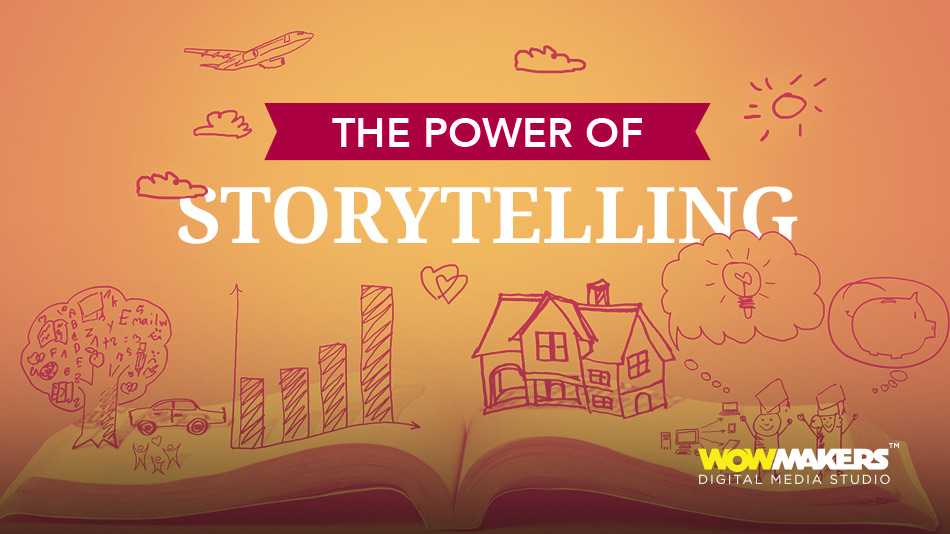Once upon a time, on the platforms of King Cross Station, a young English teacher had an idea for a story. Over the coming years, she spent her life developing her idea into a book.
But life wasn’t too kind to her. She struggled as a single mother, barely able to earn a living for her and her child. She lived on benefits for many years.
But in spite of the circumstances her dream of publishing her story; lived on. Her first drafts were rejected by 12 publishers.
And finally one day she finally made a deal with a publisher. A decade later the same story was developed into 7 books and sold over 400 million copies in over 200 countries. This single mother was none other that J.K Rowling who made history by becoming the first billionaire author.
Can you imagine your life without stories? What if you woke up tomorrow and nobody on the planet could tell stories anymore?
It’s creepy when you think about it. But it was a thought that intrigued me to write this blog post.
When we hear the word storytelling, the first thing that comes to most of our heads is cinema, books and the arts.
When we hear the word storytelling, the first thing that comes to most of our heads is cinema, books and the arts. But have you ever stopped to realise that stories are everywhere around us?
Do you ever stop hearing stories? Do you ever stop telling them?
- You read the newspaper, you find out what’s happening in the world.
- You go to the office, your coworkers want to know what you did last night.
- You go home, your family wants to know about your day.
- You watch Friends, you want to know if they were really on a break.
What is it about stories that captivates the human mind so much?
It’s because we are human! What separates us from the other members of the animal kingdom is our need to make our lives meaningful.
How do we make our lives meaningful?
By sharing our life with our fellow human beings. It’s a wonderful feeling to immortalise our life through stories. Stories that can be shared, stories that can inspire other people.

Storytelling In The World Of Business.
When you think about storytelling, the words that usually come to mind are bedtime, grandma, movies and bragging (the last one is more of a personal thought).
But you can and need to tell stories at work too!
Persuasion is the cornerstone of any business activity. But under the pressure to deliver, executives focus a lot on communication but ignore inspiration.
How do you persuade a client or an investor? Let me first illustrate most common yet least successful approach.
This approach involves sucking out the soul from the business and selling it for exactly what it is- Just another THING.
This would typically involve a Powerpoint presentation where you would say “This is what your company’s challenges are and this is what you need to do to prosper”. You build your case through facts and statistics.
The problem with this approach is that you are talking to people with their own set of ideas and perspectives. And while they may smile and nod at you, in their heads they are arguing with you. Even if you do succeed in persuading them, you’ve only done so on a factual basis.
But people are never inspired to act based on facts alone.
Now let me introduce you to the winning approach to persuasion.
You need to figure out a way to blend your idea with an emotion.
And nothing stirs up an emotion like a compelling story. By telling a story you have the dual benefit of being able to share stories as well as arouse your listener’s emotions.
What Makes A Story Good?

Storytelling is not an exact science but an art. So what makes a good story stand out?
A good story begins with who the protagonist is and the routine life that revolves around him.
He then runs into some sort of dilemma or event that disrupts his normal life.The story should then proceeds to explain how he faces the event through his character. Finally, it ends with how he was able to overcome the challenge.
The story should then proceeds to explain how he faces the event through his character. Finally, it ends with how he was able to overcome the challenge.
Let’s say you are the CEO of a toy company. You are pitching your idea to a couple of investors.
Begin with exactly what inspired you to start the company. Tell a story of how when you were a kid your father used to sell toys on the streets.
Or tell them the story of the humble beginnings of your company and how you struggled to keep your company alive.
Or tell them the story of the humble beginnings of your company and how you struggled to keep your company alive.
When you claim that you are a great company and will make big money for your investors based on a few colourful graphs, it’s hard for your investors to trust you.
But if you tell them about all the struggles and challenges you faced and tell your story honestly, it will spark an emotion in them.
Stories are interesting. They are sentimental, human and it will resonate with your investors.
If your investor was able to relate to your problems or shared a similar life experience it will build a connection.
How To Tell Better Stories?

#1) Approach the story in a structured manner!
The reason that some stories are just plain boring is that it lacks a certain flow to it:
- Breakdown your story into different stages and decide what you want to say in each stage.
- Make sure to say only what is absolutely required in each stage. Do not drown your story with unnecessary details.
- Spark the imagination of the listeners by stimulating their senses. Take this for example. I remember the days when I would visit my parents at home. I would be greeted by the aroma of freshly baked cookies and I would take them out to my porch where the sunlight would trickle through a canopy of the red autumn trees. Notice how this passage triggered your sense of smell and sight in your imagination.
#2) Study storytelling by deconstructing movie plots.
The next time you watch a movie, don’t just be a spectator. Analyse the film. Take notice of how the filmmakers are navigating you throughout the story.
The greatest storytellers in the world are filmmakers so take notes of how they narrate stories.
#3) Let go of the notion that your story is not interesting enough.
A lot of people and businesses shy away from telling their story because they feel that their story is boring.
How many times have you narrated a story to someone only to find their attention visibly drifting off? Psychologically this creates an impression in you that this story is boring.
But it’s not the story that was boring, rather the way you narrated it. This idea stems from the way of how poorly you perceive your own story. Don’t be ashamed of your story. It’s yours. Embrace it.
Over To You (Happily Ever After!)
That’s all there is to it. We are human, we love to hear and tell stories and we love them because they touch our hearts. What better way to communicate than speaking from the heart? Take a look at this case study to learn how we helped HDFC Bank to promote their payment app.







